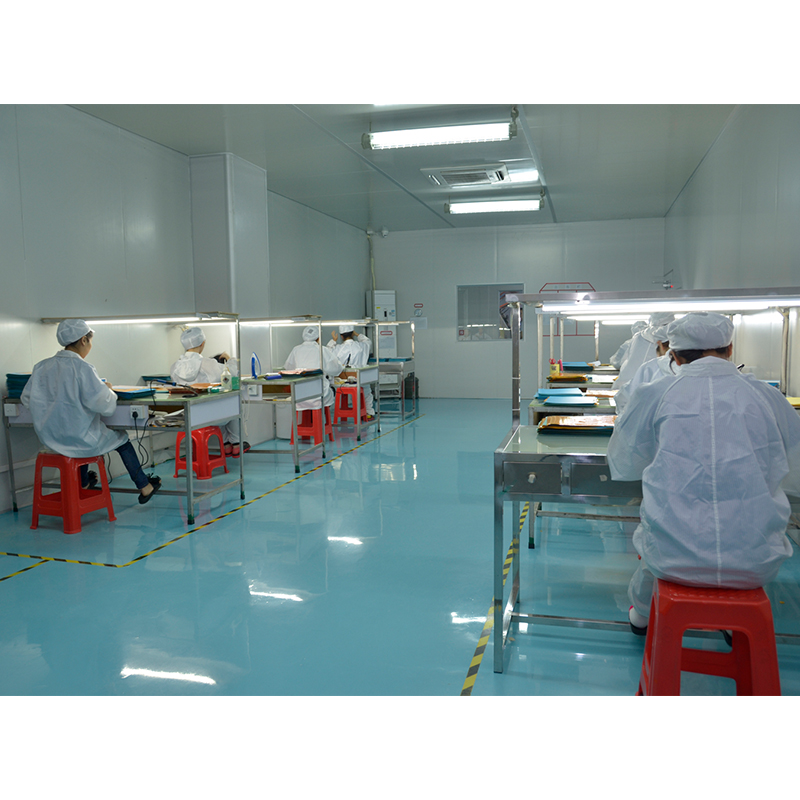Over the past few years, technological advancements have revolutionized the healthcare industry, leading to the development of advanced medical devices that aid in the diagnosis, monitoring, and treatment of patients. These devices, from vital sign monitors to advanced imaging systems, rely heavily on printed circuit boards (PCBs) to ensure their functionality and reliability. For medical devices, a key consideration is the type of PCB used. Rigid-flex PCB boards have attracted widespread attention in recent years and are often considered for use in medical devices. But are they really suitable for such critical applications? Let’s explore deeper.
Rigid-flex PCB boards are a hybrid solution that combines the flexibility of a flexible PCB with the structural support and rigidity of a rigid PCB. These boards are composed of multiple layers of rigid and flexible substrates interconnected using plated through holes, through-holes, and/or solid-state bonding. This unique composition offers several advantages that make rigid-flex PCB boards particularly suitable for medical device applications.
One of the most important advantages of rigid-flex PCB boards is their excellent reliability. Medical devices operate under demanding conditions, including exposure to various environmental factors such as temperature changes, humidity, and vibration. Rigid-flex boards are designed to withstand these conditions, ensuring uninterrupted performance throughout the life of the equipment. The absence of traditional connectors and fewer solder joints reduces the possibility of failure and makes these boards highly reliable, a key requirement in medical applications where even the slightest error is There may be serious consequences.
Additionally, space for medical equipment is always at a premium. Whether it’s a wearable fitness tracker or an implantable device, designers are faced with the challenge of housing complex electronics within a limited footprint. Rigid-flex PCBs provide a compact solution that allows designers to utilize both sides of the board, effectively saving valuable space. Additionally, the ability to bend and fold flexible sections allows for unconventional form factors, allowing medical devices to conform to the human body or fit into tight spaces.
Another aspect to consider when selecting PCBs for medical devices is the need for biocompatibility. Medical devices often come into direct contact with the human body and therefore require strict safety regulations. Rigid-flex panels are typically made from materials that meet industry standards for biocompatibility, ensuring that they will not cause any adverse reactions or harm to the patient. This is critical when developing implantable medical devices where the PCB is directly exposed to body fluids and tissue.
In addition to these advantages, the manufacturing process of rigid-flex PCB boards is also rapidly improving. This increases output, reduces production costs and shortens delivery times. These factors assume significance in the fast-paced healthcare industry, where time-to-market and cost-effectiveness play a crucial role.
However, despite the numerous advantages, specific factors should be carefully considered before selecting rigid-flex PCB boards for medical device applications. One major consideration is the complexity of the design. Rigid-flex PCB boards require careful design considerations and specialized manufacturing processes. It is critical to work closely with a knowledgeable and experienced PCB manufacturer to ensure that all design requirements and constraints are met.
Another factor to keep in mind is cost. Rigid-flex PCBs can be more expensive than traditional rigid or flexible PCBs. This is due to the specialized manufacturing processes involved and the need for high-quality materials that can withstand medical-grade environments. When exploring the feasibility of using rigid-flex PCB boards, it is critical to understand the budget constraints of a specific medical device project.
In summary, the answer to whether rigid-flex PCB boards are suitable for use in medical devices is yes, given their reliability, space-saving capabilities, and biocompatibility. With the continuous advancement of manufacturing technology and processes, rigid-flexible PCB boards have become an excellent choice for various medical applications. However, it is important to consider the complexity of the design and associated costs before making a final decision. It is highly recommended to work with a trusted PCB manufacturer with expertise in medical device applications to ensure the best results.
Remember to always stay informed about the latest technological advancements and consult professionals like Shenzhen Capel Technology Co., Ltd. who is specializing in manufacturing flexible pcb and rigid-flex pcb since 2009 to make informed decisions about the best PCB solutions for your medical device projects.
Post time: Oct-07-2023
Back







